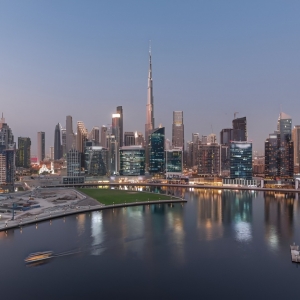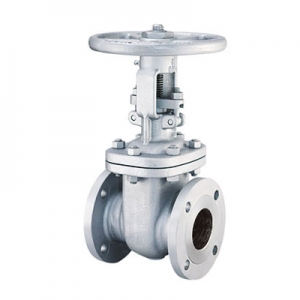Sustainability is no longer a buzzword—it’s a necessity. For businesses striving to remain competitive while addressing environmental challenges, tools like the Life Cycle Assessment (LCA) have become invaluable. Particularly in Malaysia, where ambitious sustainability goals are being pursued within a rapidly developing economy, LCA is emerging as a vital resource for informed and impactful decision-making.
This article explores the concept of Life Cycle Assessment, its methodology, and its benefits for businesses and the environment.
What is Life Cycle Assessment (LCA)?
Life Cycle Assessment (LCA) is a standardized methodology used to evaluate the environmental impact of a product, service, or process over its entire life cycle. This comprehensive approach assesses every phase of the product lifecycle, including:
- Raw material extraction
- Manufacturing and production
- Distribution and transportation
- Use and maintenance
- End-of-life disposal or recycling
The ultimate goal of LCA is to provide a cradle-to-grave assessment that identifies environmental hotspots and opportunities for improvement. By quantifying greenhouse gas emissions, water usage, energy consumption, and waste generated, LCA delivers a detailed picture of a product’s environmental footprint.
The LCA Methodology
LCA involves a systematic process divided into four key stages:
This phase outlines the objectives of the study, the product or process being analyzed, the system boundaries, and the functional unit of measurement (e.g., emissions per ton of product produced).
The LCI phase involves data collection. It identifies inputs (raw materials, energy) and outputs (emissions, waste) across the defined system boundaries.
This is where environmental impacts are analyzed based on the inventory data. Categories include global warming potential, acidification, and resource depletion, to name a few.
Lastly, findings from the LCIA are interpreted to draw actionable insights and recommendations for stakeholders.
This structured methodology ensures LCA can be applied universally and yield actionable insights, making it indispensable for organizations aiming to reduce their environmental impact.
Why LCA Matters for Businesses and the Environment
Benefits for Businesses
LCA helps organizations identify inefficiencies in their use of raw materials, energy, and water. Streamlining these processes saves costs and enhances productivity.
Governments globally are implementing stricter environmental policies. Conducting an LCA enables businesses to stay ahead of regulations, including Malaysia’s environmental requirements.
Consumers are increasingly opting for eco-friendly products. LCA empowers businesses to validate and market their green credentials, winning consumer trust and loyalty.
Environmental Benefits
Identifying high-emission stages in a product’s lifecycle helps in developing strategies to minimize carbon footprints.
Because LCA examines resource consumption, it provides roadmaps for adopting less resource-intensive materials and technologies.
End-of-life considerations in LCA help businesses divert waste from landfills and reduce pollution.
By bridging the gap between business operations and sustainability goals, LCA not only ensures profitability but also safeguards the environment.
LCA in Malaysia: A Contextual Analysis
The Growing Importance of Sustainability in Malaysia
Malaysia’s commitment to sustainability has gained traction over the past two decades. Guided by policies such as the Twelfth Malaysia Plan (2021–2025) and the National Policy on Climate Change, the nation envisions transitioning to a low-carbon economy. Additionally, the landmark Net Zero by 2050 goal underscores Malaysia’s dedication to reducing GHG emissions.
However, achieving these targets requires proactive steps by industries to address their environmental impacts. This is where LCA becomes a key component.
Applications of LCA in Malaysian Industries
1. Palm Oil Sector
Malaysia is one of the largest producers of palm oil, a commodity linked to deforestation and high carbon emissions. By leveraging LCA, companies in this sector are adopting sustainable production practices. For example, they can monitor emissions throughout the plantation and production stages or explore alternative uses for palm biomass to minimize waste.
2. Construction and Building Materials
Sustainable construction is gaining traction, with LCA being used to assess the environmental and carbon footprints of building materials like cement and steel. Green building certification systems such as Green Building Index (GBI) Malaysia often rely on LCA data to evaluate compliance with sustainable guidelines.
3. Renewable Energy Projects
LCA is pivotal in assessing the viability and sustainability of renewable energy projects, such as solar farms and bioenergy facilities. It evaluates factors such as the energy payback time and environmental benefits versus the life cycle impacts of producing and installing renewable technologies.
4. Manufacturing Sector
Manufacturers are increasingly using LCA to design eco-friendly products. For instance, Malaysian electronics manufacturers leverage LCA to ensure products meet international certifications like EPEAT or Energy Star.
Aligning LCA with Malaysia’s Sustainability Goals
Supporting Policy Implementation
LCA is a powerful tool for operationalizing Malaysia’s sustainability policies. Key policies where it plays a crucial role include:
- National Climate Change Policy (2009)
LCA provides measurable data to track progress toward reducing emissions in sectors like transportation and manufacturing.
- Green Technology Master Plan (2017–2030)
LCA aids in identifying and promoting green technologies that are resource-efficient and less environmentally harmful.
- Extended Producer Responsibility (EPR)
By using LCA, Malaysian companies can adopt EPR practices, ensuring that post-consumer waste is responsibly collected, recycled, or repurposed.
Driving Innovation
Malaysia’s growing focus on the circular economy principles aligns well with LCA methodologies. For example, LCA can help companies design products that are easier to disassemble, reuse, or recycle, reducing waste while promoting new supply chain innovations.
Enhancing Global Competitiveness
Globally, businesses face pressure to meet sustainability standards set by markets like the European Union. Malaysian companies that integrate LCA into their operations position themselves as viable partners in global supply chains, thereby staying competitive.
Challenges Facing LCA Adoption in Malaysia
Despite its benefits, the implementation of LCA in Malaysia is not without challenges:
Conducting a reliable LCA study often requires expertise, tools, and significant data—barriers for small and medium enterprises (SMEs).
Reliable and region-specific environmental data is limited, hindering LCA accuracy.
Many business leaders remain unaware of LCA’s potential or view it as an unnecessary cost.
Addressing these challenges requires policy incentives, capacity-building initiatives, and collaboration between government, industry, and academia.
Looking Ahead: Empowering Malaysia Through LCA
Malaysia’s focus on sustainability is reshaping how industries operate. For forward-thinking businesses, LCA presents itself as a remarkable tool for aligning profit goals with environmental stewardship. However, more needs to be done.
Policymakers should integrate LCA into regulatory frameworks, while educational institutions can play a vital role in building local expertise. More importantly, businesses must adopt a long-term view of sustainability, where investments in tools like LCA are seen not as costs but as assets that safeguard future growth.
By embedding LCA into the foundation of future-ready sustainability consulting and industrial strategies, Malaysia is poised to achieve its ambitious environmental goals while setting an example for neighboring nations. Life Cycle Assessment is not just a tool—it’s a compass guiding Malaysian businesses toward a greener, more prosperous future.







